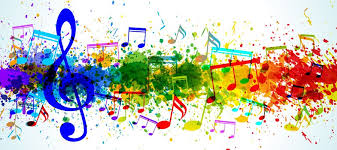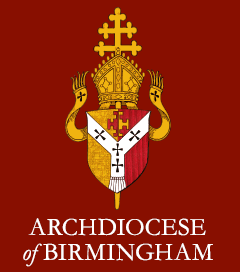Music

Music can Change the World...
Beethoven
The National Curriculum for music aims to ensure that all pupils:
- Perform, listen to, review and evaluate music
- Be taught to sing, create and compose music
- Understand and explore how music is created, produced and communicated.
Intent
At St Joseph's the intention is that children gain a firm understanding of what music is through listening, singing, playing, evaluating, analysing, and composing across a wide variety of historical periods, styles, traditions, and musical genres. Our objective at St Joseph's is to develop a curiosity for the subject, as well as an understanding and acceptance of the validity and importance of all types of music, and an unbiased respect for the role that music may wish to be expressed in any person’s life. We are committed to ensuring children understand the value and importance of music in the wider community, and are able to use their musical skills, knowledge, and experiences to involve themselves in music, in a variety of different contexts.
Implementation
hrough the Charanga musical scheme of work our children develop their understanding, make musical judgements, apply their new learning, develop their aural memory, express themselves physically, emotionally and through discussion and create their own musical ideas. The wide range of core resources have been developed specifically to motivate and capture each individual’s personal interest.
The children not only learn about music; they become musicians who are able to share and perform using their new skills.
There are 3 main resource areas: Units of Work, themed Topic songs and activities and instrumental Courses. The Units of Work are the main focal point for the music curriculum whilst the Topics and Courses provide a wealth of extension, enhancement and cross-curricular possibilities and experiences.
The Units of Work are divided into 6 steps, ideal to spread across a half term but can be used more flexibly to suit the school timetable. The activities and games cover the musical dimensions, (formerly elements – pulse, rhythm, pitch etc) through singing and playing instruments, listening and creating music – all intrinsically linked through a central song or piece.
We intend to make music an enjoyable learning experience. We aim to engage, motivate and inspire pupils to develop a love of music and their talent as musicians, and so increase their self-confidence, creativity and sense of achievement.
We support our scheme of work with the following resources:
- A class set of Ukuleles
- A class set of recorders
- Half a class set of Glockenspiels
- A set of Djembe drums
- Half a class set of Clarinets
- A range of percussion instruments
Music is a universal language that embodies one of the highest forms of creativity. As pupils progress, they should develop a critical engagement with music, allowing them to compose, and to listen with discrimination to the best in the musical canon. (The National Curriculum)
Music is a unique way of communicating, it is a vehicle for personal expression, and it can play an important part in personal and cognitive development. Music at St Joseph’s aims to reflect the culture and society that we live in, and so the teaching and learning of music enables children to better understand the world they live in.
We believe that music also plays an important part in helping children to feel part of a community and so we provide opportunities for all children to create, play, perform and enjoy music, to develop their skills, to appreciate a wide variety of musical forms, and to begin to make judgements about the quality of music.
Our teaching focuses on developing the children’s ability to understand rhythm and follow a beat. Through singing songs, children learn about the structure and organisation of music. We teach them to listen and to appreciate different forms of music. Children develop descriptive language skills in music lessons when learning about how music can represent different feelings, emotions and narratives. We also teach technical vocabulary such as volume, pitch, beat and rhythm and encourage children to discuss music using these terms.
As children get older, we expect them to maintain their concentration for longer and to listen to more extended pieces of music. Children develop descriptive skills in music lessons when learning about how music can represent feelings and emotions. We teach them the disciplined skills of recognising pulse and pitch.
Impact
Charanga Musical Units of Work enable children to understand musical concepts through a repetition-based approach to learning. Learning about the same musical concept through different musical activities enables a more secure, deeper learning and mastery of musical skills.
Over time, children develop new musical skills and concepts, and re-visit established musical skills and concepts. Repeating a musical skill doesn’t necessarily mean their progress is slowing down or their development is moving backwards! It's just shifting within the spiral. Mastery means both a deeper understanding of musical skills and concepts and learning something new.


